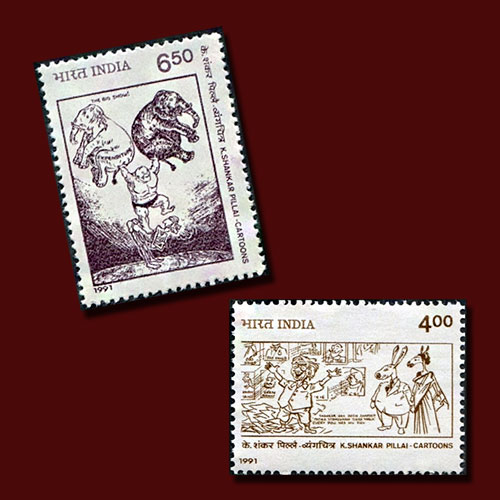Remembering Keshav Shankar Pillai
2018-12-26 Wed
One of the most celebrated cartoonists of India K. Shankar Pillai breathed his last on 26th December 1989. He was considered the father of political cartooning in India.Shankar was born in the year 1902 at Kayamkulam, Kerala. After graduating he enrolled himself for higher studies in Law College, but quit his law studies midway and started working.
He founded Shankar’s Weekly which produced cartoonists like Abu Abraham, Ranga, and Kutty. He also founded the Children’s Book Trust in Nehru House and International Dolls Museum.
Shankar's cartoons were published in The Free Press Journal and The Bombay Chronicle. He joined ‘The Hindustan Times’ as a staff cartoonist in 1932 and continued till 1946.
The government of India honored him with all three Padma awards Padma Shri in 1956, Padma Bhushan in 1966, and Padma Vibhushan in 1976. Besides these, he received an order of the smile, an honor from a committee of Polish children and the D.Litt (honoris causa) by the University of Delhi.
India Postal Department has issued two postal stamps in 1991, depicting two of his famous cartoons. Visit philamart to view and purchase variety of stamps from all over the world.
Image Source: Mintage World
Latest News
-
Malwa Sultan Mahmud Shah Silver Coins
2025-09-11 ThuMalwa Sultan Mahmud Shah minted silver coins in round and square flans. <br><br> For round coins,...
-
Malwa Sultan Mahmud Shah Billon coin
2025-08-26 TueMalwa Sultan Mahmud Shah's billon coins followed three weight standards: 100 rati, 96 rati, and 80 r...
-
Fascinating Archaeological Facts on Postage Stamps - 91
2025-08-23 SatRhinoceros is one of the oldest land mammal species existing in India. There are five species of rhi...
-
Fascinating Archaeological Facts on Postage Stamps - 90
2025-08-23 SatUthiramerur, a Village in Kanchipuram, Tamil Nadu, is notable for its Temple inscriptions that descr...
-
Fascinating Archaeological Facts on Postage Stamps - 89
2025-08-21 ThuThe term “millet” is derived from the Latin word “milum,” which translates to grain. millets...

